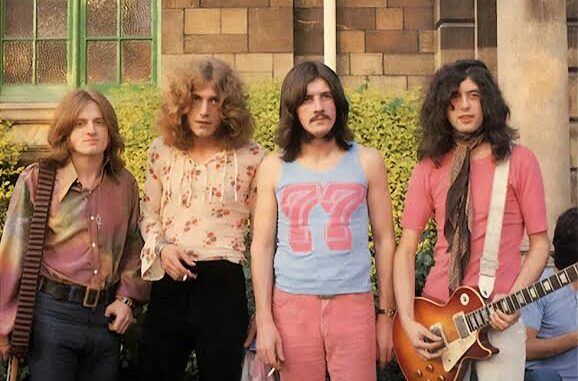
While several Led Zeppelin songs contain subtle nods and even direct references to J.R.R. Tolkien’s epic fantasy world of Middle-earth, the song that most prominently saw Robert Plant channel Tolkien’s imagery and narrative style is undoubtedly “The Battle of Evermore.”
Released on their iconic untitled 1971 album, commonly known as Led Zeppelin IV, “The Battle of Evermore” is a unique track for the band, featuring a duet between Robert Plant and British folk singer Sandy Denny of Fairport Convention. The song’s acoustic arrangement, driven by Jimmy Page’s mandolin and acoustic guitar, immediately
The lyrics of “The Battle of Evermore” are steeped in Tolkien’s lore, painting a vivid picture of a grand, fantastical conflict. Lines like “The Dark Lord rides in force tonight and time will tell us all,” and “The drums will shake the castle wall, the Ringwraiths ride in black” leave little doubt as to Plant’s inspiration. The “Queen of Light” is often interpreted as Galadriel, the Elf-Queen of Lothlórien, while the battle itself is frequently identified by fans as the climactic Battle of the Pelennor Fields from The Lord of the Rings.
Plant’s vocal delivery in “The Battle of Evermore” further enhances the Tolkien connection. His distinct wail and the sense of urgency in his voice evoke the despair and heroism of a world on the brink of war, mirroring the emotional intensity of Tolkien’s narratives. The interplay between Plant’s narrator and Denny’s “town crier” adds a narrative dimension, as if a story from Middle-earth is unfolding through their voices.
While “Ramble On” (from Led Zeppelin II) explicitly mentions Mordor, Gollum, and “The Evil One,” and “Misty Mountain Hop” (also from Led Zeppelin IV) alludes to the Misty Mountains, “The Battle of Evermore” creates a more complete and immersive tapestry of Tolkien-inspired fantasy. It’s a testament to Plant’s ability to weave complex narratives and transport listeners to otherworldly realms, drawing heavily from the literary wellspring of Tolkien’s unparalleled imagination.
Leave a Reply